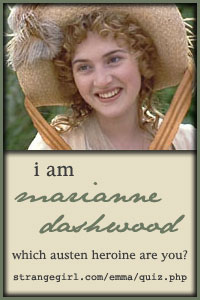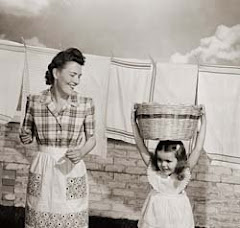A New Generation of Israeli Soldiers Confronts the Unknown Across the Lebanon Border
General NewsWebby25 July 2006
An Israeli tank near Avivim, Israel, passed Hasidic men showing support in a “mitzvah tank” van.
ISRAEL’S NORTHERN BORDER — Ohad, 22, is a narrow-faced warrior who has spent four years in the Israeli Army and operated tanks in the Palestinian territories, tough duty for any soldier. But going across the Lebanese border brought a new set of anxieties.
Having worked on the border before, he was familiar with the Hezbollah fighters he would be facing. Hezbollah positions and Israeli positions had been close enough for soldiers on each side to recognize the faces on the other, he said. But southern Lebanon itself was a forbidding place, known only from the hearsay of past wars.
“We didn’t know what to expect,” he said. “When you go to fight in a new territory that you only know from stories or pictures, it’s scary.”
Ohad, a taciturn man, did not seem to notice when a Katyusha rocket slammed with a blast into a nearby hillside, leaving a faint contrail and a plume of smoke and dust.
He grew up in a small religious community in the Galilee. Like most Israelis, he entered the army when he was 18. He has been married for a month but has not seen his wife since just after the wedding. They live in a tiny apartment in Lod, a town near Tel Aviv.
Last Thursday, Ohad, who like other soldiers was prevented from giving his last name by Israeli military rules, found out what the other side of the border was really like.
As a second lieutenant, he was in command of one of the Israeli tanks that clanked into the mountaintop village of Marun al Ras before sunrise on Thursday. It was the army’s first ground penetration into Lebanese villages in territory from which it said rockets had rained over northern Israel for more than a week.
Just minutes after entering the village, before he and his three-man crew could aim at anything, the tank was rocked by a deafening explosion that sent sparks and smoke shooting through the cramped space inside. An antitank missile had penetrated the tank’s rear corner, wounding the gunner.
They pulled the tank back and moved the wounded soldier into an empty building from where he could be evacuated.
Then they went back to help with a tank that had been disabled in the attack. They took two soldiers who were more seriously wounded than their gunner back to the border and then returned with a new gunner to get back into the fight.
It was the first time Ohad or any of his crew had experienced serious combat. They stayed in Lebanon only about 10 hours. Five Israeli soldiers died that day, one of the Israeli Army’s worst days yet in the conflict.
The resistance was “very strong,” Ohad said. “Hezbollah was well prepared for us.”
Ohad said he called his wife to say goodnight before going into battle, and called her when he came out to say he was O.K. As for crossing the border again, he said: “I’m more worried because we’ve been hit once and now we know their capability. But no one died, and so I’m reassured because the tank saved our lives.”
Right then, his tank’s radio warned of incoming rockets. He climbed aboard and called for his crew to get in. Moments later, the tank was rumbling and rattling in a cloud of dust as the soldiers moved it into position on the crest of a hill overlooking the Lebanese border.
Ohad peered through binoculars, giving instructions to his gunner as the tank barrel turned to the right, zeroing in on its target. It was time for reporters to leave.
Later, at a junction near the border, civilians came and went, offering encouragement to the young troops gathered there. An ice cream truck made several visits, its driver handing out vanilla ice cream cones to anyone who wanted one. Several rabbis canvassed the soldiers, looking for men wanting to pray.
Rabbi Eliyhu Benatar, with a graying beard and wide-brimmed black hat, helped wrap the young men’s left arms and foreheads with tefillin, ritual leather straps that hold in place small black boxes containing biblical scriptures. “God help us,” he said. One of the soldiers who sought the rabbi’s assistance was Gal, 20, from Ramat Hasharon, near Tel Aviv. He is a medic in a paratrooper unit but had been sent here to help evacuate wounded soldiers. “If something happens, another doctor and I go in a tank to take the wounded out,” he said.
He had scrambled into his tank several times in the past few days, but had not yet crossed the border. At each alarm, he said, he was gripped by an initial anxiety, which dissipated as soon as he got in the tank. “I’m waiting,” he said. “I want to be useful.”
This is the first real fight for most of the army’s young men, who seem uniformly tall and lanky. None of them have ever fought outside the country, and there is an unspoken but palpable sense that this is their war.
“If you asked me two weeks ago whether I would be standing here waiting to go into Lebanon, I would have said, ‘what are you talking about,’ ” Gal said. “But I’m here, and I’m used to it now.”
A tank repair team was busy, slamming a tank tread with a sledgehammer. “We’ve lost a few tanks,” a member of the repair team said.
A plume of smoke appeared a few miles away, marking the impact of a Katyusha rocket. It slowly built into a skein of white tilting across the sky as the pine forest around it caught fire. Yellow firefighting planes soon swooped and climbed, dropping a red fire-retardant over the flames.
“Mitzvah tanks,” the brightly painted minivans operated by adherents to the Chabad-Lubavitch branch of Hasidic Judaism, arrived at the junction in the afternoon, broadcasting a sort of Hasidic disco. Their passengers, young men in Hasidic dress with wildly flowing sidelocks, spilled out of the vans dancing and singing, some leaping onto the tanks.
“We’re here to entertain the troops,” a man with a footlong beard shouted from atop one of the vans.
Another group handed out white knit skullcaps bearing the words “Nachman of Uman” in blue Hebrew letters, a reference to Rabbi Nachman of Breslov, the founder of another Hasidic branch. “They protect the soldiers’ lives,” one of the Nachman followers said of the caps. When asked what he thought of the fighting, he summed up what many Israelis are saying these days.
“It’s because of our own foolishness,” he said. “We left Lebanon six years ago and let Hezbollah do whatever they wanted, and this is the result.”
[CH.info Ed Note: The Times seems to have merged the Lubavitch Mitzvah Tanks with the Breslov Chasidim's Simcha Van's. Interesting observation.]
NQJC Relaunch!
3 years ago















No comments:
Post a Comment